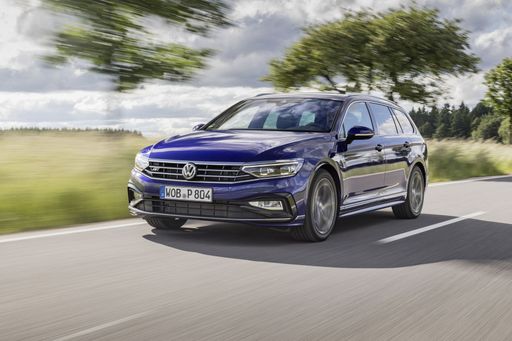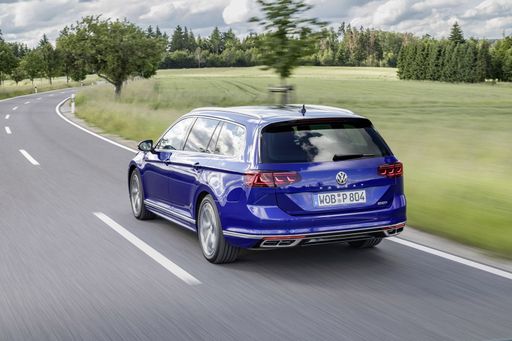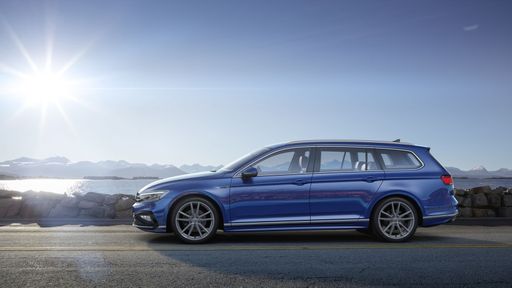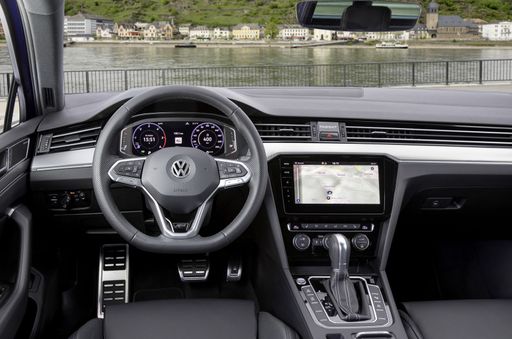Toyota Yaris vs VW Passat – Differences & prices compared
Compare performance, boot space, consumption and price in one view.
Find out now: which car is the better choice for you – Toyota Yaris or VW Passat?
The Toyota Yaris (Hatchback) comes with a Full Hybrid or Petrol engine and Automatic or Manuel transmission. In comparison, the VW Passat (Estate) features a Plugin Hybrid, Diesel or Petrol engine with Automatic transmission.
When it comes to boot capacity, the Toyota Yaris offers 286 L, while the VW Passat provides 690 L – depending on how much space you need. If you’re looking for more power, decide whether the 280 HP of the Toyota Yaris or the 272 HP of the VW Passat suits your needs better.
In terms of consumption, the values are 3.80 L per 100 km for the Toyota Yaris, and 0.40 L for the VW Passat.
Price-wise, the Toyota Yaris starts at 21900 £, while the VW Passat is available from 37300 £. Compare all the details and find out which model fits your lifestyle best!
Toyota Yaris
The Toyota Yaris exudes a charming blend of practicality and style, making it an appealing choice for urban drivers. Its compact design allows for easy manoeuvrability in crowded city streets, while the interior offers a surprisingly spacious and comfortable environment. With a focus on fuel efficiency and reliability, the Yaris remains a popular option for those seeking a balance between performance and economy.
details @ Toyota
@ Toyota
 @ Toyota
@ Toyota
VW Passat
The VW Passat is a staple in the family saloon segment, known for its refined design and practicality. It effortlessly combines a comfortable ride with a spacious interior, making it a popular choice for long journeys. The cabin features high-quality materials and an intuitive infotainment system, providing a premium feel without sacrificing user-friendliness.
details @ volkswagen-newsroom.com
@ volkswagen-newsroom.com
 @ volkswagen-newsroom.com
@ volkswagen-newsroom.com
 @ volkswagen-newsroom.com
@ volkswagen-newsroom.com
 @ volkswagen-newsroom.com
@ volkswagen-newsroom.com

|

|
|
|
|
Costs and Consumption |
|
|---|---|
|
Price
21900 - 45000 £
|
Price
37300 - 57200 £
|
|
Consumption L/100km
3.8 - 9.5 L
|
Consumption L/100km
0.4 - 8.1 L
|
|
Consumption kWh/100km
-
|
Consumption kWh/100km
-
|
|
Electric Range
-
|
Electric Range
124 - 133 km
|
|
Battery Capacity
-
|
Battery Capacity
19.70 kWh
|
|
co2
87 - 215 g/km
|
co2
8 - 183 g/km
|
|
Fuel tank capacity
36 - 50 L
|
Fuel tank capacity
45 - 66 L
|
Dimensions and Body |
|
|---|---|
|
Body Type
Hatchback
|
Body Type
Estate
|
|
Seats
4 - 5
|
Seats
5
|
|
Doors
3 - 5
|
Doors
5
|
|
Curb weight
1090 - 1356 kg
|
Curb weight
1673 - 1858 kg
|
|
Trunk capacity
141 - 286 L
|
Trunk capacity
510 - 690 L
|
|
Length
3940 - 3995 mm
|
Length
4917 mm
|
|
Width
1745 - 1805 mm
|
Width
1849 mm
|
|
Height
1455 - 1500 mm
|
Height
1521 mm
|
|
Payload
289 - 525 kg
|
Payload
501 - 577 kg
|
Engine and Performance |
|
|---|---|
|
Engine Type
Full Hybrid, Petrol
|
Engine Type
Plugin Hybrid, Diesel, Petrol
|
|
Transmission
Automatic, Manuel
|
Transmission
Automatic
|
|
Transmission Detail
Manual Gearbox, Automatic Gearbox
|
Transmission Detail
Dual-Clutch Automatic
|
|
Drive Type
Front-Wheel Drive, All-Wheel Drive
|
Drive Type
Front-Wheel Drive, All-Wheel Drive
|
|
Power HP
116 - 280 HP
|
Power HP
122 - 272 HP
|
|
Acceleration 0-100km/h
5.5 - 9.7 s
|
Acceleration 0-100km/h
5.8 - 10.7 s
|
|
Max Speed
175 - 230 km/h
|
Max Speed
212 - 250 km/h
|
|
Torque
390 Nm
|
Torque
320 - 400 Nm
|
|
Number of Cylinders
3
|
Number of Cylinders
4
|
|
Power kW
85 - 206 kW
|
Power kW
90 - 200 kW
|
|
Engine capacity
1490 - 1618 cm3
|
Engine capacity
1498 - 1984 cm3
|
General |
|
|---|---|
|
Model Year
2024 - 2025
|
Model Year
2024
|
|
CO2 Efficiency Class
B, G
|
CO2 Efficiency Class
B, D, G
|
|
Brand
Toyota
|
Brand
VW
|
Toyota Yaris
Introducing the Next-Gen Toyota Yaris: A Blend of Innovation and Technology
The Toyota Yaris has long been lauded for its efficiency, reliability, and practicality. As we venture into the 2024 model year, Toyota has upped the ante with the latest versions of this popular hatchback, melding cutting-edge technology with eco-conscious design. Here’s an in-depth look at what makes the current Yaris line-up stand out from the crowd.
Efficient Powertrains: Hybrid and Beyond
Spearheading the technological innovation in the Yaris range is the introduction of various hybrid models. The Yaris offers a 1.5-litre full-hybrid engine, marrying a petrol engine with an electric motor to produce between 116 and 130 PS. This power blend is controlled via a sophisticated CVT-gearbox, optimizing both performance and fuel efficiency, with consumption figures ranging from an impressive 3.8 to 4.2 litres per 100 km.
For those seeking pure performance, the GR Yaris variants provide a turbocharged 1.6-litre engine capable of producing 280 PS. This power is delivered via a choice of manual or automatic transmission, giving drivers the tactile involvement or convenience they desire.
Design that Fulfils and Inspires
The Yaris hasn't forgotten its roots as a compact, city-friendly hatchback, measuring between 3,940 and 3,995 mm in length. With its bold front grille, sleek lines, and a choice of striking colours, it's a car that turns heads while remaining perfectly suited for urban environments.
The interior is equally impressive, designed with a focus on driver convenience and comfort. Depending on the variant, Yaris can offer generous cargo space of up to 286 litres, making it a perfect companion for everyday tasks or weekend escapes.
Technological Integration: The Smart Choice
Toyota's approach goes beyond just improving engine technology; the Yaris is packed with innovative features aimed at enhancing the driving experience. It boasts a suite of advanced safety systems such as lane departure alert, pre-collision system, and adaptive cruise control, ensuring peace of mind on the road.
The infotainment system in the Yaris is designed to keep you connected, offering seamless smartphone integration, a user-friendly interface, and an intuitive navigation system, ensuring that you're always informed and entertained.
The Cost of Innovation
Owning a Yaris is not just about impressive technology; it's also about making economic sense. With a price range between €25,500 and €49,990, and monthly costs spanning from €748 to €1,513, it offers a broad spectrum to suit different budget needs.
Concerned about emissions? You can rest easy knowing that the Yaris boasts a CO2 efficiency class ranging from B to G, thanks to its low emissions output of between 87 to 215 g/km.
Conclusion: The Toyota Yaris Drives the Future
The Toyota Yaris continues to be a strong contender in the compact car segment, pushing boundaries with its innovative full-hybrid systems and performance-oriented GR models. It's a remarkable blend of design, technology, and economy, ensuring it remains a top choice for drivers who demand more from their hatchbacks.
Whether you're seeking the efficiency of a hybrid or the thrill of the GR Yaris, there's a model tailored to your unique driving needs in Toyota's latest Yaris lineup.
VW Passat
The Evolution of the VW Passat: A Blend of Tradition and Innovation
The VW Passat has long been a staple in the realm of family cars, known for its reliability, spaciousness, and impressive engineering. The latest models uphold this reputation while integrating cutting-edge technology, making them some of the most competitive offerings in the market today.
Engine Options and Performance
The modern VW Passat embraces a wide array of powertrains to cater to different driving preferences. From the nimble 1.5 eTSI ACT petrol-powered mild hybrid with 150 PS to the robust 2.0 TSI petrol variant with 265 PS, there's an engine configuration for every type of driver. For those conscious of fuel efficiency, the plug-in hybrid models offer an impressive consumption rate of just 0.4 L/100 km, with an all-electric range of up to 126 km, providing an eco-friendly solution without compromising performance.
Advanced Transmission and Drive Systems
Every Passat features a sophisticated automatic dual-clutch gearbox, ensuring smooth transitions and optimal fuel efficiency. The drive options include both front-wheel and all-wheel-drive systems, which provide better traction and handling in various driving conditions. The all-wheel-drive system, particularly in the high-performance variants delivering up to 272 PS, ensures superior control and stability even in challenging terrains.
Interior Comfort and Connectivity
The interior of the VW Passat is designed with a focus on luxury and technological convenience. With a wide array of premium materials and ergonomic design, the cabin offers an inviting atmosphere for both driver and passengers. Advanced connectivity features keep you linked to the digital world, with a user-friendly infotainment system that integrates seamlessly with smart devices, ensuring entertainment and convenience on every journey.
Innovative Safety Features
Safety is a key consideration in the design of the VW Passat. The latest models come equipped with an array of state-of-the-art safety features, including adaptive cruise control, lane-keeping assist, and an emergency braking system. These technologies work together to provide a safe and secure driving experience, reflecting Volkswagen's commitment to driver and passenger safety.
Fuel Efficiency and Environmental Impact
The VW Passat stands out in its segment with noteworthy fuel efficiency across the board. With CO2 emissions ranging from just 8 g/km in hybrid models to a maximum of 183 g/km, the Passat offers a broad spectrum of environmentally conscious driving options. This impressive efficiency is complemented by a range of CO2 efficiency classes spanning from B to G, catering to varying environmental preferences.
Conclusion: A Versatile Family Car
In conclusion, the VW Passat remains a remarkable choice for families and individuals seeking a blend of performance, comfort, and advanced technology. Its wide range of options and configurations allow it to meet diverse needs, ensuring that there's a Passat for everyone. With prices ranging from €41,665 to €66,695, the Passat offers premium value in its class, further solidifying its reputation as a definitive all-rounder in the world of estate cars.
The prices and data displayed are estimates based on German list prices and may vary by country. This information is not legally binding.
